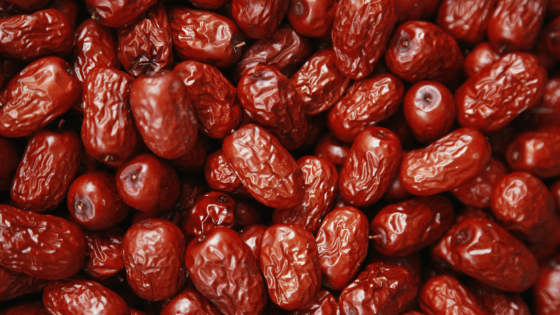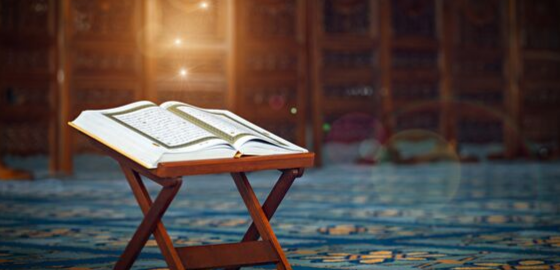This is the fourth Sūrah in a row dealing with the theme of the Last Day. Sūrah at-Takāthur is a Makkan Sūrah according to the majority of scholars. Although some scholars view it Madinan, its theme and style indicate that it is Makkan. The Sūrah has eight verses, and revolves around the theme of wealth and its distracting nature.
Sūrah at-Takāthur teaches us that humans are often distracted from their purpose by their pursuit of wealth and pleasure. This distraction lasts until they pass away. It is only then, when it is too late, that they realize that they had wasted their lives. It ends with a severe warning that on the Last Day, we will be asked about every blessing Allah had given us in this world.
The Rat Race
The Sūrah begins with a warning that people are distracted by at-Takāthur. This word can be translated in many ways. There isn’t a single English word that equals it in meaning. If summarized as a sentence, at-Takāthur means a constant competition to pile up the wealth of this world.
Humans, throughout history, have been obsessed with wealth. This is why warnings about this obsession pop up multiple times in the final part of the Quran. Sūrah al-ʿĀdiyāt also warned that mankind is too extreme in their love of wealth. The main problem with this obsession is that it is a distraction from the things that really matter. When a person’s sole focus is piling up wealth, such a person rarely has a thought to spare for things like the purpose of life or the Afterlife. Life becomes one big race to pile up more and more.
This was the case of the pagans of Makkah at the time of the Prophet (peace be upon him). But it is also the case of the majority of Capitalists today. Capitalistic society pushes the idea of the ‘pursuit of happiness’ and by happiness it means wealth and power. People spend all their time trying to pile up as much wealth as possible, and their greed is never satisfied.
The average person chases millionaire status. The millionaires work all day and night to become multi-millionaires. The Multi-millionaires are obsessed with billionaires. And the billionaires compete for the status of wealthiest person on earth. This deep obsession with more has distracted people from their purpose in life. When money is the only thing on one’s mind, there is no room left in it for God or anything else.
The way back is simple. Take a step back and reevaluate your priorities. There is nothing wrong with wealth in Islam. Allah even refers to it as Khair (good) in Sūrah al-ʿĀdiyāt. It is man’s obsession and love of wealth that is criticized. Pure hard earned wealth that is used to worship Allah and uplift society is a blessing from Allah. Allah does not ask us to give up wealth in this Sūrah. He is warning us instead to prioritize the Afterlife.
The Destroyer of All Pleasures
The Sūrah continues and states that people remain in this state of obsession and neglect until they ‘visit the graves’. The common interpretation of this is ‘until they die’. This interpretation fits in perfectly with the rest of the Sūrah so it is the one we will stick with here. The Prophet (peace be upon him) called death the destroyer of pleasures.
Death is an inescapable reality. Every human has to face the reality of their own mortality at some point in their life or another. Remembering death is considered a good deed in Islam because it humbles the heart and causes people to repent. Death is the one reality that nobody can escape from. Every millionaire and billionaire will find their wealth worth nothing in the grave, except those who spent it in righteous causes.
Too many people waste their lives in pursuit of wealth and pleasure, thinking it will bring them happiness. But that happiness never arrives. It is only on their death beds that they reflect, look back, and regret at how they wasted their lives. We can avoid these regrets by thinking about death often, reflecting on its reality, and using that to help us prioritize the Afterlife over this life.
The Test of Wealth
The Sūrah continues by describing the Afterlife of the one who died in this state. It states that they will see the Hellfire with their own eyes, then stand in account for what they did with the blessings that they were given. Hellfire is a reality and a day will come when people will see it with their own eyes. This will be on the Last Day when it is dragged forth and displayed before all of humanity. On that day, there will be no skeptic or atheist. Every human will see the reality of the Afterlife.
The Sūrah ends with a warning that people will be asked on that day about the blessings they enjoyed in this world. This ending should hit hard. Too many people view their blessings in this world as a reward or sign of acceptance. They see it as something they earned and something they can do whatever they will with. All of these are mere delusions.
When a person is given any blessing in this world, whether it is wealth, power, intelligence or beauty, it is all a test from Allah. Allah tests some people by depriving them of these blessings and witnesses their reactions. He tests others by blessing them with worldly success after worldly success. But each of these successes are actually a test in disguise. This is the test that more people fail.
It is easy to be pious and humble when a person lacks worldly possessions and wealth. Life keeps a person down, and they have to turn to Allah for help. The majority of humans become more spiritual and religious during times of difficulty and hardship. But the test of wealth is harder.
Wealth blinds the heart and distracts the soul. It consumes time and attention. It creates pride, and opens the doors of unlimited entertainment. Sins that were previously impossible become easy to access for the wealthy. Wealth is one of the biggest tests a person can ever face in this world, and it is the one test the Prophet (peace be upon him) feared most for his nation.
This test can be passed by doing three things; earning our wealth in a permissible way, being grateful for our wealth, and spending it in a way that is pleasing to Allah. If a person does these three things, then wealth becomes a blessing in both worlds. Such a person will not be afraid to answer on the Last Day about what he did with his blessings.
To learn more Tafsir of the Quran, check out my ebook Themes of the Quran, currently on sale at half price here.






